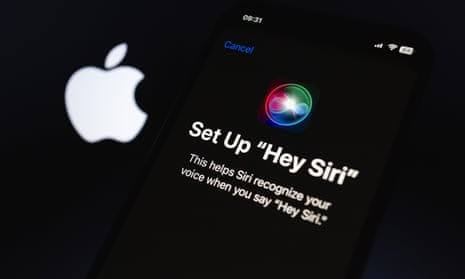
Apple has agreed to settle a long-running lawsuit for $95 million, addressing claims that its voice assistant, Siri, recorded private conversations without users’ consent and shared this information with advertisers for targeted ads.
The settlement, filed in a federal court in Oakland, California, is still awaiting approval from U.S. District Judge Jeffrey White. If approved, it would resolve a lawsuit that has been in litigation for over five years. The case accuses Apple of violating user privacy by unintentionally activating Siri and recording sensitive conversations, which were later allegedly used by third parties for advertising purposes.
The plaintiffs argued that Siri’s voice activation system, which responds to the “Hey, Siri” command, would sometimes trigger unintentionally, recording conversations without the users’ knowledge. These recordings were then allegedly shared with advertisers, leading to the appearance of unusually precise targeted ads.
For example, two plaintiffs reported that after discussing Air Jordan sneakers and Olive Garden restaurants in private conversations, they were bombarded with ads. Another individual claimed he was served ads for a surgical treatment after discussing it in private with his doctor.
While agreeing to the settlement, Apple has not admitted to any wrongdoing. The company maintains that the voice assistant recordings were unintentional and attributed the issue to accidental activations of Siri. The problem reportedly became more prevalent after Apple introduced the “Hey, Siri” feature in 2014, which could trigger Siri even if the user did not use the command.
Whistleblower reports from 2019 revealed that Siri might have inadvertently captured private conversations, including medical and business discussions. These recordings were reportedly accompanied by user-specific data like location and contact information, raising concerns over privacy breaches.
Under the proposed settlement, Apple plans to offer compensation of up to $20 per eligible Siri-enabled device purchased between September 17, 2014, and December 31, 2024. Devices included in the settlement are iPhones, iPads, Apple Watches, MacBooks, HomePods, iPod Touches, and Apple TVs. Each customer can submit claims for up to five devices.
The settlement is still awaiting final approval, with a hearing scheduled for February 14, 2025. If the court approves the settlement, Apple will notify affected users and provide instructions on how they can file claims. The settlement also ensures that Apple will permanently delete any unauthorized recordings that were made.
Plaintiffs’ attorneys may seek up to $28.5 million in legal fees and $1.1 million for expenses from the settlement fund, though they have not commented publicly on the case.
While the $95 million settlement may seem like a significant sum, critics argue that Apple is getting off lightly. Had the case gone to trial and resulted in a favorable ruling for the plaintiffs, Apple could have faced financial penalties upwards of $1.5 billion under the Wiretap Act alone.
Legal experts believe the settlement was reached partly due to uncertainties in data privacy law. The plaintiffs’ attorneys acknowledged that ongoing litigation could have significantly reduced the number of affected users, further complicating the case. The settlement amount, according to their motion, represents only a fraction of the damages that could have been claimed.
Apple has consistently denied that it uses Siri recordings for targeted ads, emphasizing its commitment to user privacy. However, the controversy surrounding Siri has drawn attention to broader concerns about voice-activated devices and the privacy risks they pose.